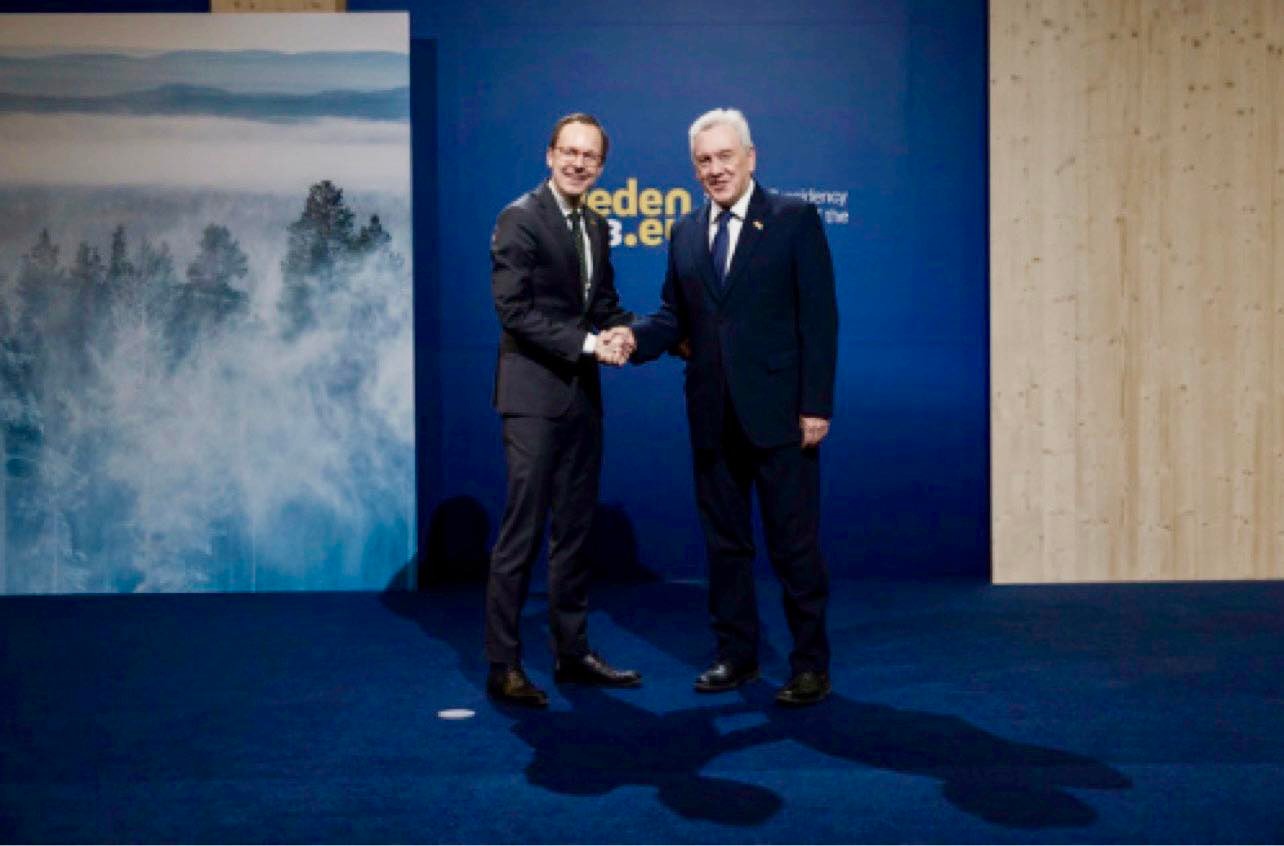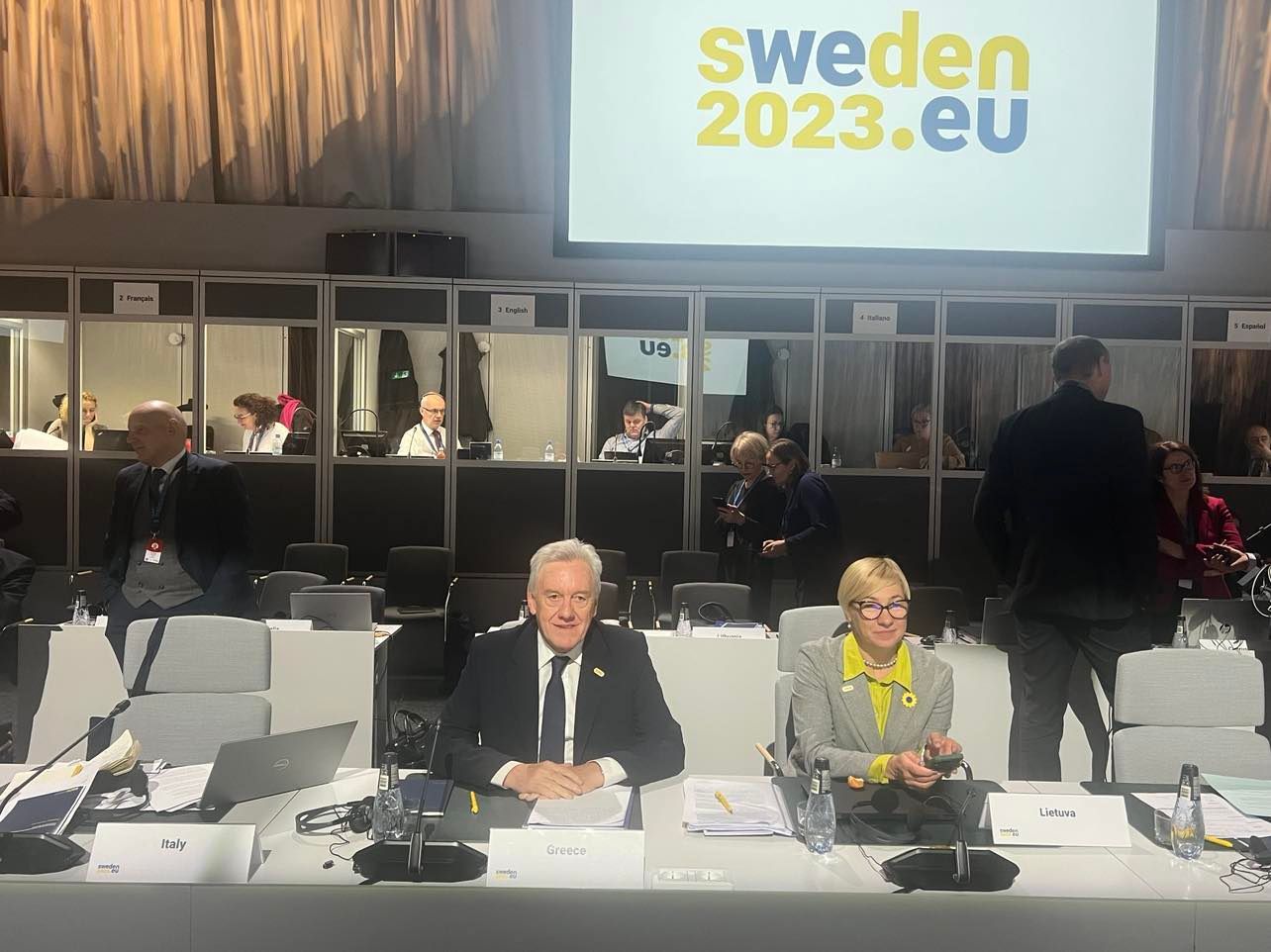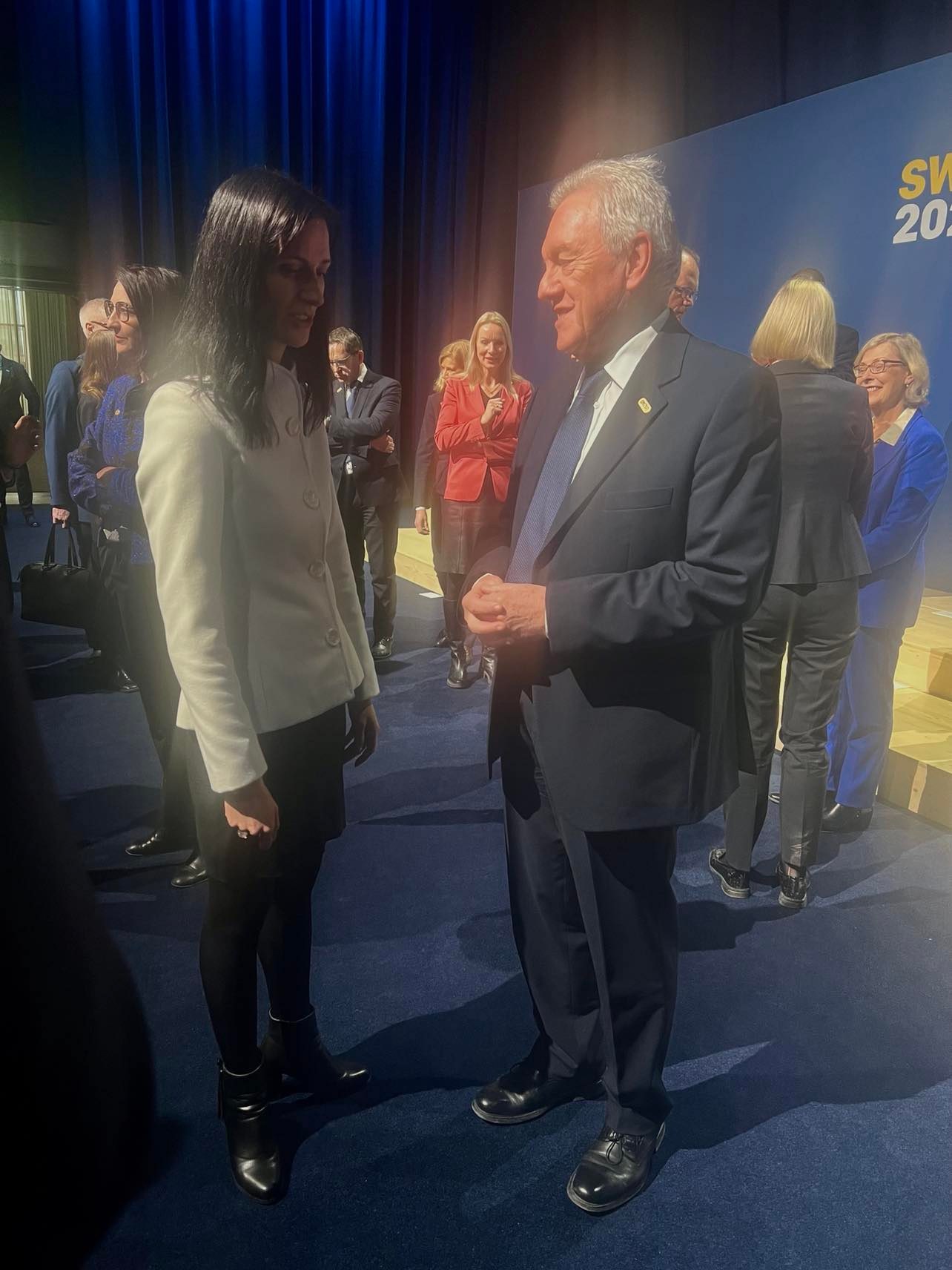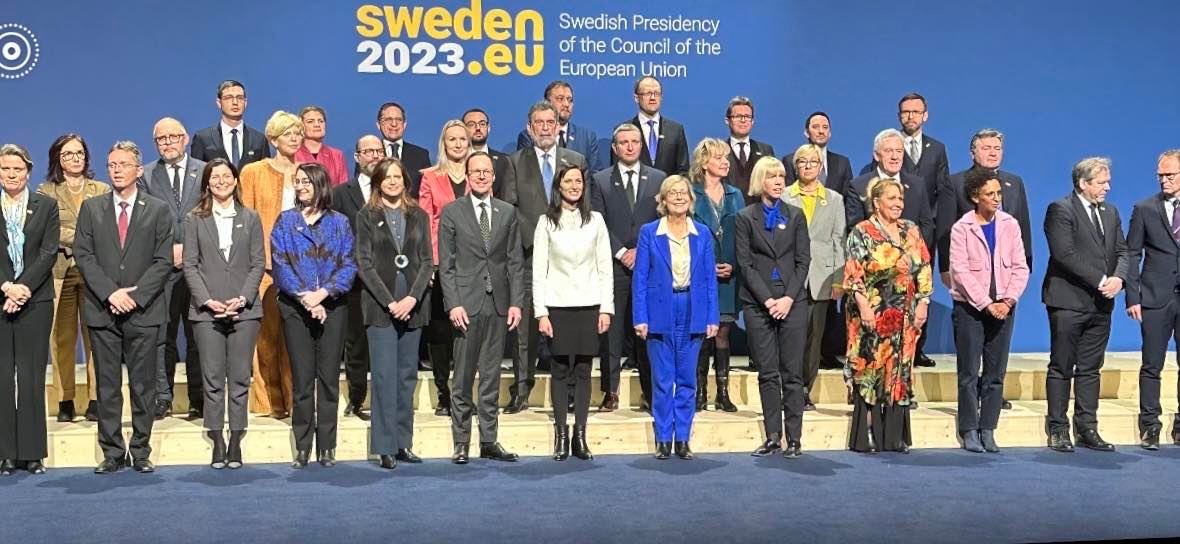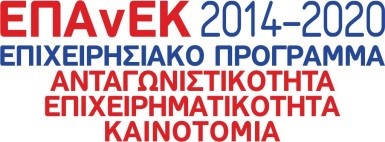On Wednesday 8th February 2023, Mr Athanasios Kyriazis, Secretary General for Research and Innovation, participated in the informal meeting of competitiveness ministers (Research) held in Stockholm.
The main themes of the meeting were research data, digital research infrastructures and open science, discussed in a two-session policy debate.
During the first session on “Research Infrastructures in the digital transition – maximizing the benefit of research data”, Mr Kyriazis thanked the Swedish Presidency and the European Commission for inviting all Member States to express their views in order to find ways to achieve digital transition and optimize use of research data to the benefit of European economies and European citizens.
In his address, he pointed out, among other observations, that the issues under discussion highlighted the need for common policies and actions at both national and EU level, as challenges can only be overcome through collective action. More specifically, he suggested that the costs of investments require cooperation and selection of European and national strategic priorities. It is necessary to select priorities for the implementation of FAIR (Findable, Accessible, Interoperable, Reusable) principles in research data, and to establish and support expert-guided data editing processes.
He suggested that priority should be given to data generated by high-level scientific publications or data deemed to be of critical importance by the community, and put a special emphasis on skills, i.e. the training and skill upgrading of researchers and undergraduate students, pointing out that open science training should be the norm for them in the future. Finally, he stated that the European Open Science Cloud (EOSC) should move higher up the agenda and become the EU gateway for achieving worldwide cooperation, through the creation of working groups in specific sectors aimed at international collaborations on FAIR data training.
At the second public debate session on “Strengthening high quality, open, trustworthy and equitable scholarly publishing”, Mr Kyriazis pointed out that high costs undoubtedly represent one of the major challenges to ensuring high-quality, open and easily accessible publications and that cooperation is necessary in order to identify and develop support measures at the national and Union level to pave the way for open and rapidly accessible publications. He added that such measures should be aligned with legislative amendments aimed at protecting Author IP. He also suggested that best practice exchange between national financing bodies would be of benefit to this endeavor.
Further, he indicated that, in order to ensure excellence and high quality of publications in an Open Science context, researchers should be more actively involved and more deeply committed to ensuring peer-reviewing, in line with the Open Science principles.
Finally, Mr. Kyriazis pointed out that, similarly to research data, training and supporting researchers, specifically young researchers, is key to achieving the ultimate goal of establishing Open Science as the new norm.





